Program Information
Thank You Sponsors
CEU Information
Dr. Virginia Spielmann
Kieran Rose
"Ky" Kyrus Keenan Westcott
Drs Amy Laurent / Jacquelyn Fede
Dr. Amy Pearson
Hillary Crow
Dr. Hanna Bertilsdotter-Rosqvist
Naureen Hunani
Dr. Kelly Mahler
Dr. Megan Anna Neff
Dr. Sarah Hays
Bobbi AdamsBrown
Dr. Diamond Rashad
Lovette Jallow
Dr. Luke Beardon
Bryden Carlson-Giving
Dr. Michele Cohen
Dr. Melissa Houser
Dr. Shayda Kafai
Lola Dada-Olley
Speaker Disclosure Statements
Virginia Spielmann (she/her), PhD, OTR/L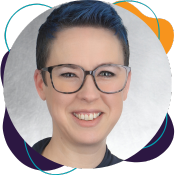
Executive Director
STAR Institute
USA
Host
Virginia is a well-travelled speaker, coach and educator on topics including sensory integration, DIR/Floortime, child development and infant mental health. She has conducted trainings in Kenya, Australia, the Philippines, Vietnam, Hong Kong, and the USA and leads workshops at international conferences.
Virginia is a founder and former Clinical Director of SPOT (Speech, Physical, and Occupational Therapy) Interdisciplinary Children's Therapy Center in Hong Kong, where she led a large and widely respected inter-disciplinary team.
Virginia obtained her BSc in Occupational Therapy in Oxford England (2002) and her Masters in Occupational Therapy from Mount Mary University, Milwaukee (2018). She is a DIR/Floortime Training Leader and Expert and clinical consultant for the Interdisciplinary Council for Development and Learning (ICDL). Her extensive pediatric experience includes children on the autism spectrum, as well as those with Sensory Processing Disorder, infant mental health issues, adoption, developmental trauma.
Virginia has considerable post-graduate training, she is certified on the SIPT and is currently completing her Ph.D. in Infant and Early Childhood Development with an emphasis on mental health, with Fielding Graduate University, in Santa Barbara. She is a published author and contributed to the STAR Frame of Reference as part of the 4th Edition of Frames of Reference for Pediatric Occupational Therapy, alongside Dr. Miller and Dr. Schoen.
Expert Panel | The Danger of Good Intentions: Critical Thinking About Neuroinclusive Practice
In this thought-provoking yet deeply rewarding expert panel discussion, we'll shine a light on a crucial blind spot. Human services professionals, driven by compassion, can inadvertently cause harm when neuroinclusive practices lack in-depth critical thinking. Well-meaning interventions might end up entrenching ableist ideas or ignoring the autonomy and real-life experiences of neurodivergent clients.
When our espoused ideals of inclusive care clash with our actual practices, it creates discomfort and defensiveness. This session invites you to lean into the *defensive dissonance of realizing your practice isn’t as inclusive as you’d hoped—and why that discomfort is the first step toward transformative change. We will all be challenged to set aside perspectives that center the clinician and truly listen to the voices of those we aim to support. Discover why critical self-examination isn't just nice-to-have, but the cornerstone of ethical care. Get ready to be challenged and transformed!
Kieran Rose (he/him)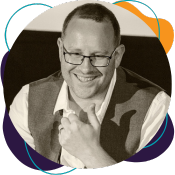
Consultant, Writer, Advocate
The Autistic Advocate
United Kingdom
Co-Host
Kieran Rose is an internationally recognised Autistic author, academic researcher, and consultant with a background in SEND education and public service delivery for Autistic adults. Diagnosed as Autistic in 2003 and the parent of three Autistic children with varying support needs, Kieran draws on personal and professional experience to challenge stigma, deconstruct traditional autism narratives, critically reflect, and reframe understanding through an intersectional lens.
Kieran delivers specialist training and consultancy globally, working with professionals, organisations, and institutions to foster reflective practice, challenge ideologies, and promote affirming approaches to Autistic experiences and Neurodivergence. He guest-lectures at universities across the UK and is a regular guest lecturer on 5 teaching streams at the Anna Freud Centre. He also supervises mental health specialists and education professionals, supporting the development of inclusive, compassionate practices. He is also a former lead trainer and content creator for the National Autism Trainer Project for NHS England, and is a consultant and trainer for the HSC in Northern Ireland.
Kieran is a faculty member and consultant for the STAR Institute, a leading US-based organisation in Occupational Therapy practice and research, and also a faculty member of the Universidad de Castilla-La Mancha in Spain, as Lecturer on the ‘Specialist Degree in Supporting Autistic People from a Transdisciplinary and Inclusive Approach’.
Kieran’s academic research focuses on Autistic Masking, victimisation, stigma, intimate partner violence, and lifeworld approaches to care, with ongoing projects exploring Monotropism, Autistic identity, suicidality, and experiences of therapy. He is an Honorary Research Associate at the University of Sunderland, an external collaborator at University College London and Durham University, and a peer reviewer for leading autism journals.
Among having published various chapters, along with leading autism researcher, Assistant Professor of Developmental Psychology Dr Amy Pearson of Durham University, Kieran has co-authored, the highly acclaimed book ‘Autistic Masking: Understanding Identity Management and the Role of Stigma’, a groundbreaking academic touchstone exploring identity development for Autistic people, what masking means and what it happens in response to, and what that can mean for professional practice.
Outside of work, Kieran enjoys reading and watching Science Fiction and Horror, researching the Paranormal, cooking, stargazing with his children, and occasionally finding the brain space to write for his platform, The Autistic Advocate, which has been read by millions worldwide.
Kyrus Keenan Westcott (he/him) 
Advocate, Creator
The Vibe with Ky
USA
Co-Host
Kyrus Keenan Westcott, known online as “Ky,” is a mental health advocate, digital marketing strategist, and the creator of The Vibe With Ky, a platform reaching over 1.5 million followers across TikTok, Instagram, and Facebook. With humor, honesty, and lived experience, Ky shares relatable content about ADHD, introversion, anxiety, and the chaos of adulting. Diagnosed in his mid-30s with ADHD, Severe Depression, Generalized Anxiety Disorder, and Existential OCD, Ky uses his voice to make mental health feel human, not clinical. His mission is simple: to help people feel seen, validated, and a little less alone.
Amy Laurent (she/her) PhD, OTR/L
Developmental Psychologist, Occupational Therapist, Co-Director
Autism Level UP!
USA
Dr. Amy Laurent is a developmental psychologist and a registered pediatric occupational therapist. She is a co-author of the SCERTS model, a comprehensive, evidence-based model for supporting autistic individuals across the lifespan. She frequently lectures and provides training throughout the United States and internationally on topics related to neurodiversity and helping others to understand and honor the implications of "different ways of being" in relation to navigating the physical and social world. Her research interests include emotional / energy regulation and active engagement in natural contexts. Dr. Laurent strives to practice what she preaches and uses her love of play and movement to meet her own regulatory needs.
Jacquelyn Fede (she/her), PhD 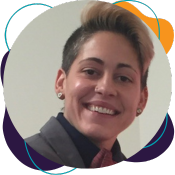
Psychologist, Autistic Self-Advocate
Autism Level UP!
USA
Jacquelyn Fede, PhD is a super fun, Autistic Self-Advocate, developmental psychologist and program evaluator. Her research interests include immigration policy, autism, and community engagement. She uses her experience to help educate others about autism through lecturing, blogging and consulting on evaluation projects. A full scholarship Division 1 athlete in college, Dr. Fede continues to meet her sensory needs by seeking extreme physical activity. She also enjoys the use of creativity and art for expression.
Positively Negative - Why We Need to Rethink PBIS
This talk will discuss the research-based evidence that calls into question the effectiveness of behavioral management systems that rely on external reinforcement while also introducing relationship-based, developmentally grounded frameworks designed to provide validating and useful supports in a range of contexts. Application to a range of contexts will be discussed.
After participating in this session, attendees should be able to:
- Identify the relationship between traditional behavior management systems and positive behavior interventions and supports.
- Identify documented negative outcomes for children that result from the consistent use of compliance based systems.
- Describe alternative methods of supporting young people who are experiencing dysregulation.
- Summarize qualities of authentic and validating support systems that facilitate engagement and do not promote masking and other mental health challenges.
Amy Pearson (she/her), PhD
Assistant Professor
Durham University
United Kingdom
Amy is an Assistant Professor in Developmental Psychology at Durham University and a core member of the Centre for Neurodiversity & Development. Amy is an autistic researcher, and her work focuses on understanding factors which impact on positive outcomes among autistic and neurodivergent people across the lifespan, particularly interpersonal relationships and identity. In 2023, Amy was awarded the Rosalind Franklin Society Award in Science for her research which explored the interpersonal abuse among autistic people. Her most recent project, funded by the Violence, Abuse and Mental Health Network, explored the support and recovery needs of autistic victim-survivors of intimate violence and abuse. This work led to the development of An Autistic Guide to Healthy Relationships. Her work has been published in leading peer-reviewed journals, and she is on the editorial board for the journal ‘Neurodiversity’ (Editor), and Autism in Adulthood (Deputy Editor). Amy has extensive experience developing and delivering training for external organisations, including the Association of Child and Adolescent Mental health. She is the chair of North Tyneside Council’s Research and Evaluation group for the Neurodiversity Transformation Strategy.
Understanding the Impact of Masking and How to Foster Authenticity
In this presentation, I will discuss the concept of 'autistic masking' as a form of stigma management. I will talk about the different ways that masking may manifest and how it impacts autistic people across the lifespan. I will then cover how professionals and allies of autistic people (e.g. caregivers, friends) can provide a safe environment to support autistic people to explore their authentic selves.
After participating in this session, attendees should be able to:
- Define autistic masking and identify potential drivers of masking behaviour.
- Describe the impact of autistic masking on autistic people, from childhood through to adulthood.
- Apply knowledge of what drives masking to reduce its occurrence and support autistic individuals in expressing their authentic selves.
Hillary Crow (she/her), MA, CCC-SLP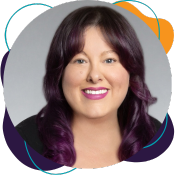
Speech-Language Pathologist
Crow Autism & Speech Therapy Consulting Services, Inc
USA
Hillary Crow, MA, CCC-SLP is a Speech-Language Pathologist, an educator and author, and the founder and owner of Crow Autism & Speech Therapy Consulting Services, Inc. As an Autistic individual herself, Hillary brings both professional expertise and lived experience to her work and commitment to neurodiversity-affirming practices. In addition to providing direct speech-language therapy services to clients of all ages, she frequently collaborates with other Autistic and otherwise-neurodivergent individuals to publish on topics related to neuroaffirming care and speak at agency, state, and national events. Hillary is also the secretary on the board of directors for the Infant Development Association of California (IDA), and she recently contributed as a subject matter expert to the creation of ASHA’s updated Autism and Autism Spectrum Disorder Practice Portal. When Hillary is not working, she loves playing/reading/singing/dancing with her daughter, playing boardgames with her husband, snuggling her extra fluffy ginger cat named Tiger Lily, reading, dreaming of Scotland (she is a bonafide caledonophile), and looking up etymologies of words and origins of idioms— because she is a word nerd in both her professional and personal lives.
Neuroaffirming Early Intervention: Supporting Authentic Development for Zero to Five
Delve into the world of neuroaffirming care in Early Intervention (EI) services with Hillary Crow, MA, CCCSLP. Discover how to implement services through a compassionate lens that affirms neurodiversity, even for your youngest clients. Hillary, an Autistic SLP, will blend her lived experience and professional knowledge to guide you through evidence-based practices, equipping you with a robust toolbox of practical resources and strategies. From refining assessment techniques to crafting impactful goals, and from empowering parent coaching to delivering effective services, you will solidify your understanding of neuroaffirming practices for the EI population.
After participating in this session, attendees should be able to:
- Explain how neuroaffirming practices support infant/ toddler mental health.
- Identify at least 3 neuroaffirming strategies to use when responding to a child’s cues.
- Analyze a case study of a parent coaching session for qualities of neuroaffirming care.
- Explain how to problem-solve and adjust therapy strategies to support children’s regulation.
Hanna Bertilsdotter Rosqvist (she/her), PhD 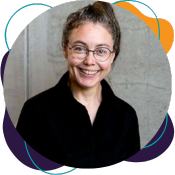
Professor
Södertörn University
Sweden
Dr. Hanna Bertilsdotter Rosqvist is a neurodivergent sociologist, professor in Social Work at Södertörn University, Sweden, and senior lecturer in social work at Karlstad University, Sweden. Her research focuses on neurodiversity and neurodivergence. She has published several articles and books on the topic, among them Neurodiversity Studies. A New Critical Paradigm (eds Bertilsdotter Rosqvist, Chown & Stenning, 2020, Routledge); The Palgrave Handbook of Research Methods and Ethics in Neurodiversity Studies (eds Bertilsdotter Rosqvist and Jackson-Perry, 2024, Palgrave) and Exploring Autistic Sexualities, Relationality, and Genders: Living Under a Double Rainbow (eds Bertilsdotter Rosqvist, Krazinski & Day, 2024, Routledge).
Exploring Autistic Sexualities, Relationality, and Genders: Living Under a Double Rainbow
The lecture will set out the problem of looking at Autistic sexualities, genders, and relationalities from a distance within a deficit approach, one that stresses lack and need for “correction”. It proceeds to introduce neurodiversity-affirming approaches to autistic sexualities and genders, stressing the importance of recognition of neurodivergence and different expressions of sexualities, genders, and relationalities among Autistic people. I will examine the importance of finding other ways of telling our stories, including developing new concepts for our sexual and gendered experiences in order to move the field of autism, sexuality and gender forward in a neurodiversity-affirming way.
After participating in this session, attendees should be able to:
- Critically analyze how traditional deficit-based models have shaped the discourse around autistic sexualities, genders, and relationalities.
- Describe the key tenets of a neurodiversity-affirming approach to understanding autistic experiences of sexuality and gender.
- Identify the importance of language, narrative, and conceptual frameworks in shaping autistic self-expression and identity.
- Recognize the diversity of relational forms and gender/sexual expressions within autistic communities.
- Apply neurodiversity-affirming principles when supporting autistic individuals in clinical, educational, or advocacy settings related to sexuality and gender.
Naureen Hunani (she/her), RD 
Registered Dietitian
RDs for Neurodiversity
Canada
Naureen Hunani is a multiply-registered dietitian with over 18 years of clinical experience. She is the founder of RDs for Neurodiversity, an online continuing education platform dedicated to neurodiversity-informed care for healthcare professionals.
In her private practice in Montreal, Canada, Naureen supports children, adults, and families navigating feeding and eating challenges through a trauma-informed, neuro-inclusive, weight-inclusive, and anti-oppressive approach.
With extensive experience working with neurodivergent individuals, she advocates for early identification of feeding differences, inclusion, and acceptance. Naureen has shared her expertise at national and international conferences and is deeply passionate about helping professionals build neurodiversity-affirming practices.
In 2023, she was honored with ASAN’s "Nothing About Us Without Us" Award for her commitment to advocacy and inclusion related to neurodivergent feeding differences and her work in eating disorders.
Deconstructing "Normal": Feeding Therapy Without the Neuronormative Agenda
Rethinking goals, tools, and expectations in pediatric feeding support
This presentation challenges clinicians to critically examine the neuronormative ideals that often shape feeding therapy, particularly when supporting autistic, ADHD, and children with sensory differences. Together, we will deconstruct the concept of "normal" in relation to feeding, exploring how it reinforces ableist assumptions and contributes to harm.
Clinicians will be invited to reevaluate commonly used tools, redefine what progress can look like, and shift away from compliance-based approaches.
Emphasis will be placed on creating affirming, flexible support that honors neurodivergent feeding experiences and food culture. Through this lens, feeding therapy becomes less about fixing and more about connection, autonomy, and safety.
After participating in this session, attendees should be able to:
- Define neuronormativity and explain how it influences traditional approaches to pediatric feeding therapy.
- Identify ableist assumptions commonly embedded in feeding goals, tools, and definitions of progress.
- Summarize key strategies to create neurodiversity-affirming feeding support that embraces sensory differences and diverse feeding experiences.
Kelly Mahler (she/her), OTD, OTR/L 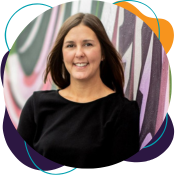
Occupational Therapist
USA
Dr. Kelly Mahler earned a Doctorate in Occupational Therapy from Misericordia University, Dallas, PA. She has been an occupational therapist for 22 years, serving school-aged children and adults. Kelly is winner of multiple awards, including the 2020 American Occupational Therapy Association Emerging and Innovative Practice Award & a Mom’s Choice Gold Medal. She is an adjunct faculty member at Elizabethtown College, Elizabethtown, PA as well as at Misericordia University, Dallas, PA. Kelly is a co-principal investigator in several research projects pertaining to topics such as interoception, self-regulation, trauma & autism. Kelly is an international speaker and presents frequently on topics related to the ten resources she has authored:
- The Interoception Curriculum: A Step-by-Step Framework for Developing Mindful Self-Regulation–winner of Mom’s Choice Award Gold Medal
- Interoception Activity Cards–winner of Mom’s Choice Award Gold Medal
- Interoception Yoga Cards
- Interoception Exercise Cards
- My Interoception Workbook: A Guide for Adolescents, Teens and Young Adults
- The Comprehensive Assessment of Interoceptive Awareness-3rd edition
- Interoception: The Eighth Sensory System
Modern Emotion Regulation Supports: Are You Keeping with the Times?
Emotion regulation supports for neurodivergent learners are rapidly evolving—and many commonly used approaches haven’t kept pace. This session explores the latest research and neurodivergent insights, highlighting six critical shifts we must make to align with modern, compassionate care:
- From trauma-blind to trauma-informed
- From compliance-driven to regulation-driven
- From sensory exposure/desensitization to sensory safety
- From cognitive therapy to interoception-based work
- From deficit-focused to strength-based
- From theory of mind to theory of OWN mind
Walk away with concrete, affirming strategies you can use across ages and learning styles.
After participating in this session, attendees should be able to:
- List at least 3 critical shifts needed to modernize emotion regulation supports for neurodivergent learners.
- Describe how traditional approaches, such as compliance-based and cognitive-only models, may conflict with neurodivergent experiences.
- Explain the rationale for using interoception-based and sensory-safe strategies in emotion regulation work.
- Identify at least one practical, affirming strategy that promotes regulation across diverse ages and learning profiles.
Megan Anna Neff (she/they), PhD 
Clinical Psychologist
Neurodivergent Insights
USA
Dr. Megan Anna Neff is a Clinical Psychologist, author, and founder of Neurodivergent Insights. She is the author of Self-Care for Autistic People and The Autistic Burnout Workbook. She is a regular contributor to Psychology Today and has published in a number of academic journals on topics ranging from neurodivergence, place attachment, relational psychoanalysis, social psychology, and the integration of spirituality into psychotherapy. Her work has been featured in CNN, PBS, ABC, Huffington Post, and The Los Angeles Times.
After discovering her own neurodivergence at the age of 37, Dr. Neff became passionate about increasing awareness of non-stereotypical presentations of autism and ADHD. She began creating educational resources and sharing them on social media, which led to her becoming an “accidental Instagram Therapist.” She continues to share her passion for distilling complex academic research into visually accessible formats through her company, Neurodivergent Insights (https://neurodivergentinsights.com), where she creates education and wellness resources for the neurodivergent mind. She also enjoys sharing the insights she gleans through research and personal experience by co-hosting Divergent Conversations, a weekly podcast about neurodivergence.
What Is Autistic Burnout? What It Is, Why It Matters, and What To Do About It
This talk offers an in-depth exploration of Autistic burnout — a chronic state of emotional, physical, and cognitive exhaustion disproportionately experienced by Autistic individuals. The presentation outlines why Autistic burnout deserves clinical attention, how it diers from both typical burnout and depression, and the contextual factors contributing to its onset. It examines the emotional and functional toll of burnout, explores overlapping presentations with depression, and outlines actionable strategies for prevention, intervention, and recovery. Special attention is given to the role of clinicians in recognizing the signs of Autistic burnout early, particularly because burnout can significantly increase vulnerability to suicidal thoughts and behaviors.
By understanding Autistic burnout as a form of neurodivergent communication — a signal of unmet needs and environmental mismatch — clinicians are better equipped to offer care that is preventative, neuroaffirming, and potentially life-saving. This training positions burnout recognition as a key suicide prevention strategy, particularly in populations that may be underdiagnosed, overlooked, or misunderstood in traditional mental health settings.
After participating in this session, attendees should be able to:
- Identify the core features and common contributors to Autistic burnout and differentiate it from depression and general burnout.
- Describe how masking, sensory overload, and unmet support needs contribute to the development of Autistic burnout.
- Apply neurodivergent-affirming strategies to support recovery from burnout in Autistic clients, including harm-reduction and self-attunement practices.
Sarah Hays (she/her), PsyD 
Accelerate Program Manager, Psychologist
Take This, Respec Psychological Services
USA
Sarah Hays (she/her) is a doctor of counseling psychology and licensed mental health counselor in Washington State. Her passion for serving the gaming community has been clear since before she started working for Take This in 2018, where she serves as the Accelerate Program Manager – providing revolutionary mentorship to marginalized individuals seeking to bridge their careers between games and mental health. She also delivers live, educational content like workshops, panels, and co-hosts Take This’ Twitch stream. Never satisfied with limiting herself to serving one part of the gaming community, Dr. Hays is an outpatient therapist for the game-based mental health nonprofit Save Point Behavioral Health, specializing in working with games industry, ADHD, and LGBTQIA+ populations. She has served as the Director of Programming for Queer Women of Esports, as an advisor for the Games Hotline, and is one of the editors of the groundbreaking book A Clinician’s Guide to Geek Therapy. She has authored a number of other works, including a chapter in Video Games and Well-Being and The Psychgeist of Pop Culture: The Witcher. She will be releasing her first solo-edited book this fall, The Psychgeist of Pop Culture: Black Mirror.
Sarah is a White, queer, cisgender, neurodivergent woman.
Understanding Attention in ADHD - It's Not What You Think!
ADHD is seemingly predictable, often interpreted as the attention span of a goldfish and evokes young boys bouncing around a classroom. In reality, ADHD can look incredibly different from person to person. This presentation will cover topics like highlighting common ableist thoughts/tendencies related to ADHD, ways that ADHD (especially attention) manifests differently, and how to be affirming as a support to ADHD folks.
After participating in this session, attendees should be able to:
- Describe various ways ADHD (and attention as a subset of symptoms) presents
- Identify ways that internalized ableism can skew our interpretation of ADHD/related behaviors
- List three or more ways to be positive supports for ADHD-diagnosed individuals
Bobbi AdamsBrown (she/her), M.A. CCC-SLP 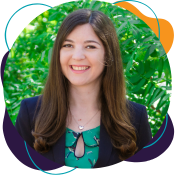
Speech-Language Pathologist
Anchor Creek Speech Therapy
USA
Bobbi AdamsBrown, M.A. CCC-SLP, is a neurodiversity-affirming Speech-Language Pathologist, entrepreneur, consultant, and educator committed to expanding meaningful and supportive services for Autistic and Neurodivergent communities. As the founder and CEO of Anchor Creek Speech Therapy Inc., Bobbi advocates for a connection-over-compliance approach, fostering inclusivity and innovation in the field. With over nine years of clinical experience and seven years as a business owner, she has mentored thousands of professionals, presented at national conferences, and been recognized by ASHA as a Distinguished Early Career Professional. Passionate about educational advocacy, assistive technology, and social determinants of health, Bobbi actively works to improve family systems through parent coaching, counseling, and professional education. Through her leadership, advocacy, and commitment to interdisciplinary collaboration, Bobbi aims to shape the future of speech-language pathology by driving systemic change. She is devoted to advancing accessibility, promoting equity, and increasing culturally competent, neurodiversity-affirming practices throughout the field.
Supporting Interoception in Gestalt Language Learners: Strategies for SLPs and OTs
Supporting Interoception in Gestalt Language Learners: Strategies for SLPs and OTs is an interdisciplinary, neurodiversity-affirming session designed for speech-language pathologists and occupational therapists. Through personal experiences and evidence-based practices, this presentation clarifies key sensory concepts, including interoception, exteroception, and alexithymia, highlighting their roles in emotional regulation and communication. Attendees will explore how challenges interpreting internal bodily cues impact emotional regulation and expressive language, particularly in gestalt language processors and AAC users. Practical strategies grounded in natural language acquisition emphasize authentic, context-rich modeling to build interoceptive awareness and self-advocacy skills. Participants will leave empowered to collaboratively support gestalt language learners in connecting bodily sensations, emotions, and communication.
After participating in this session, attendees should be able to:
- Define interoception, exteroception, and alexithymia, clearly differentiating between external sensory input and internal bodily signals.
- Explain how challenges in interoception and alexithymia commonly impact emotional regulation and expressive language in neurodivergent populations.
- Identify characteristics of gestalt language processing (GLP), distinguishing them from analytical language processing.
- Demonstrate practical strategies for modeling sensory and emotional vocabulary within authentic, context-based interactions using natural language development principles and AAC supports.
Diamond Rashad (she/her), OTD, OTR/L 
Occupational Therapist
A Dime of OT
USA
Dr. Diamond Rashad (she/her) is an occupational therapist with nine years of experience in sensory integration, pediatric feeding therapy, lactation support, and working with children and adolescents with neurodevelopmental and neurological conditions. She received her Master of Health Science in Occupational Therapy from Augusta University in 2016, and her Doctorate of Occupational Therapy (specialty in pediatrics) from Rocky Mountain University of Health Professions in 2019.
Dr. Rashad's expertise spans clinical practice, research, mentorship, and advocacy, particularly with research and presentations at national conferences on the topics of neurodiversity, maternal health, and cultural responsiveness. She currently serves as a Coalition of Occupational Therapy Advocates for Diversity (COTAD) Board Member. She continues to contribute to workshops and virtual courses focused on neurodiversity-affirming strategies, early intervention, and inclusive play for occupational and speech therapists.
Intersectionality and Honoring Black Neurodivergent Experiences
In this presentation, Dr. Diamond explores how race, neurodivergence, and systemic inequities intersect to shape the lived experiences of Black neurodivergent individuals and their support networks. Drawing on recent research and personal narratives, she will examine the unique challenges of navigating racism and ableism in various settings while highlighting the strengths, resilience, and cultural foundations that sustain Black neurodivergent communities. Through an intersectional lens, participants will explore misrepresentation that can occur in therapy settings and identify strategies for creating affirming, inclusive spaces that honor lived expertise.
After participating in this session, attendees should be able to:
- Identify strengths and cultural factors that sustain neurodivergent individuals and their support networks.
- Analyze community-based supports alongside the intersection of race and neurodivergence in therapeutic and institutional settings.
- Apply affirming strategies to create more inclusive, respectful, and empowering therapeutic environments that honor lived expertise.
Lovette Jallow (she/her) 
Author, Lecturer, Inclusion Strategist
Sweden
Lovette Jallow is a nine-time award-winning author, strategist, and global speaker specializing in neurodivergence, anti-racism, and structural equity. A Black autistic woman with lived experience across West Africa and Europe, Lovette brings a rare combination of critical insight, applied systems thinking, and lived expertise to institutions seeking to move beyond performative inclusion.
Her work spans sectors including humanitarian coordination, neurodiversity consulting, and cultural policy reform offering institutions tools to confront how race, disability, and power are embedded in diagnostics, education, and organizational design. She is the founder of Black Vogue, a platform that challenged the Eurocentric beauty industry and reshaped public discourse on racial representation in Scandinavia. Rather than a lifestyle project, Black Vogue served as a structural critique of how Black women are erased, regulated, and pathologized insights she expands in her published books, which are now used in academic and policy contexts.
Lovette is also the founder of Action for Humanity, an independent humanitarian initiative working across Sweden, The Gambia, Libya, and Lebanon to support refugee repatriation, anti-racism education, and advocacy for marginalized neurodivergent communities. Her lectures have been delivered at universities, international summits, and corporate institutions addressing how white supremacy, ableism, and structural neglect define mainstream inclusion frameworks.
She does not deliver awareness talks. She offers systems critique, evidence-informed tools, and strategies rooted in justice not compliance. Her work affirms that true inclusion requires not just access, but structural accountability.
White Supremacy and the Pathologization of Neurodivergence: Unmasking the Systems that Silence Us
This session explores how white supremacist frameworks have shaped the pathologization of neurodivergent minds, particularly among Black, Brown, and racialized individuals. Drawing from history, lived experience, and policy critique, Lovette Jallow examines how diagnostic systems are rooted in colonial control, medical gatekeeping, and systemic erasure. Attendees will learn how race, class, and power shape what is considered a “disorder” versus a difference. The talk offers a reframing of neurodivergence not as deficit—but as divergence from a violently imposed norm. Participants will leave with tools to challenge institutional harm and reimagine truly inclusive models of care and understanding.
After participating in this session, attendees should be able to:
- Identify how white supremacy has historically shaped diagnostic criteria and mental health frameworks.
- Describe how race, class, and cultural bias influence the pathologization of neurodivergent individuals.
- Analyze the systemic impact of misdiagnosis, underdiagnosis, and over-surveillance in racialized communities.
- Explain why inclusion strategies must address structural racism and not just neurodivergence in isolation.
- Apply culturally aware and trauma-informed practices to support diverse neurodivergent individuals.
- Summarize key strategies for disrupting ableism and white normativity in professional settings.
Luke Beardon (he/him), PhD 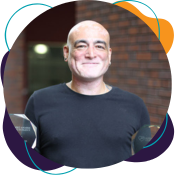
Senior Lecturer in Autism
Sheffield Hallam University
United Kingdom
I have been working for decades in the autism field, in capacities ranging from practitioner to researcher to trainer, first working with autistic children as a volunteer aged fourteen. For years I was a Support Worker for Autistic adults in residential services; I subsequently worked for The National Autistic Society (NAS) helping to co-ordinate the development of a residential service for young autistic adults. I worked within this service supporting young adults with a range of complex needs, from those with high dependency needs and severe learning disability, to Autistic individuals accessing Higher Education. I went on to hold three additional posts at the NAS working with Local Authorities developing provision and support culminating with being Head of Training and Consultancy before moving to Sheffield Hallam University.
I co-wrote the ASPECT consultancy report (2007), the largest UK consultation with autistic adults undertaken at the time; I am co-editor of five books on autism published by Jessica Kingsley, and am sole author of an additional seven books: ‘Autism in Adults’ (2017); ‘Autism in Childhood’ (2019); ‘Avoiding Anxiety in Autistic Children’ (2020); ‘Avoiding Anxiety in Autistic Adults’ (2021); ‘What Works for Autistic Children’ (2022); ‘What Works for Autistic Adults’ (2023); and ‘Reasonable Adjustments for Autistic Children’ (2024) and have several other publications in journals and books.
I have run a Project developing autism services within a specific Local Authority, been involved in the setting up and running of two autism Social Groups and have also been employed by the NAS as Regional Development Officer co-ordinating developments over a large geographical area. This has given me the background experience to work at a strategic level within Local Authorities to develop good practice in the field of autism. The Project included the development of diagnostic services, day provision, residential provision, and transition services.
I have been part of a research team at Nottingham University running a three-year project and have several publications in National and International journals related to the project. I completed my Doctoral thesis at Sheffield Hallam University which was around understanding autistic individuals who had been involved in the Criminal Justice System which subsequently led me to being an expert witness for several years providing reports to court.
I have provided consultancy around how to work with and support autistic individuals, organisational consultancy, and consultancy to Local Authorities and National bodies, and have spoken at numerous National and International conferences on a variety of autism related topics. I have also addressed parliament in Westminster and the United Nations in New York.
My most recent post is with Sheffield Hallam University, as Senior Lecturer in autism. I run courses at different academic levels in autism and am the Course Leader for the Post Graduate Certificate in Autism, while continuing to research in the field. I supervise several students at Doctoral level, most of whom are autistic. I am proud of the several autistic (ex) students who successfully completed their Doctorates under my supervision.
Every year the student survey has run I have been nominated as either an Inspirational Teacher, Inspirational Research Supervisor, or both. In 2011 I was awarded the Inspirational Teacher Award. In 2012 I was awarded the Inspirational Research Supervisor Award. In 2018 I was awarded my third Inspirational Award and in recognition was presented the Sheffield Hallam Vice-Chancellor Award. In 2021, and again in 2022 I was awarded additional Inspirational Teacher Awards. In 2015 I was a finalist for the prestigious National Autistic Society’s Lifetime Achievement Award for a Professional. In 2016 I was the winner at the National Autistic Society’s Autism Professionals Awards for Achievement by an Individual Educational Professional. In 2016 I was nominated and reached the finals for the Autism Hero Awards run by Anna Kennedy Online in two categories: Lifetime Achievement, and Individual Professional – and won both categories. In 2021 I was awarded the Sparkle Sheffield Award for Lifetime Achievement in Autism. I have several media appearances, including BBC TV and Radio 4, The Guardian, The Independent – and an article on me appeared in the Times celebrating my achievements. My Blog was voted second best in the award winning Aukids magazine in their list of ten top all-time favourite autism Blogs.
My interests are anything related to autism, pretty much to the exclusion of everything else.
Autistic Authenticity, Epistemology, and Affirmation
Covering the myths and tropes around autism, including the language we often use, the presentation will cast some light on why so many autistic people are exposed to micro-aggressions, which can significantly impact detrimentally on their well-being.
After participating in this session, attendees should be able to:
- Identify an autism myth that is still in current social use.
- Explain what a micro-aggression is.
- Demonstrate how micro-aggressions can play a part in the life of an autistic person.
- Summarize the importance of autistic authenticity.
Bryden Carlson-Giving (he/him), OTR/L 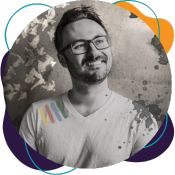
Occupational Therapist
Neurodivergent Nexus
USA
Bryden is a neurodivergent and disabled occupational therapist working in the public schools, where he combines clinical expertise with lived experience to advance inclusive, anti-ableist practice. He earned his post-professional doctorate from Boston University, where he developed a toolkit to help OTPs challenge ableism in pediatric settings—work that led to the creation of the EMPOWER model, the first neurodiversity-focused occupational therapy framework. Bryden is the founder of Neurodivergent Nexus, an online hub for resources supporting anti-ableist OT practice, and the recipient of Boston University’s Emerging Leader Award. He is also the editor of Neurodiversity-Affirming Occupational Therapy: Empowering Approaches to Foster Neurodivergent Participation, out in March 2026.
Perspectives on Neuroinclusive Practice: The Need for Critical Reflexivity
In this dynamic session, Dr. Virginia Spielmann, Kieran Rose, and Bryden Carlson-Giving come together to explore what truly constitutes neuroinclusive, identity-affirming occupational therapy. Through candid conversation, they unpack how seemingly neutral practices often reflect ableist assumptions and discuss pathways toward respectful, empowering service delivery that honors the lived experiences of neurodivergent individuals.
After participating in this session, attendees should be able to:
- Define neurodiversity-affirming and anti-ableist principles in the context of occupational therapy.
- Describe components of a practical toolkit that supports affirming practices across the OT service continuum.
- Analyze the limitations of current occupational therapy models and apply strategies for critical self-reflection to address ableism.
Michele Cohen (she/her), PhD 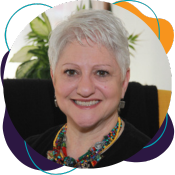
Psychologist
USA
Michele Cohen is a passionate advocate and a professional wearing many hats. Since the age of 10, she has been actively involved in advocating for the under-represented. Her journey into psychology was spurred by the harm inflicted on her family by Bruno Bettelheim's theories. She holds a PhD and uses her title as a tool for advocacy. Professionally, she founded her own business in 2015 after a 20-year stint in the non-profit sector. She currently works at a free clinic in Milwaukee, runs a private counseling practice, teaches at a local university, and assists with administration at Navarro Professional Counseling Services. Michele is also a loving wife and cat owner, with a diverse range of interests outside of her professional life.
There Has to be a Better Way
Join us for an impactful session where Michele Cohen shares her deeply personal journey through the trauma inflicted by Bruno Bettelheim's discredited theories on her family. Beginning in 1972, Bettelheim's false 'refrigerator mother' concept unjustly blamed her mother, causing long-lasting emotional scars. Michele's pursuit of a PhD in psychology was a direct response to this injustice. After the webinar, we will engage in an open discussion on how to transform this painful retrospection into a resolute drive for change, ensuring a better future for neurodivergent individuals and their families.
After participating in this session, attendees should be able to:
- Recognize how historical misconceptions about autism affected family dynamics
- List the harmful psychological impacts of blaming mothers for their children's neurodevelopmental differences
- Describe the intergenerational impact of misguided psychological interventions
- Compare historical approaches to neurodevelopmental differences with current best practices
Melissa Houser (she/her), MD 
Founder
All Brains Belong VT
USA
Dr. Mel Houser is a family physician and Founder and Executive Director of All Brains Belong VT, a nonprofit organization with a mission to support the health and belonging of people with all types of brains. All Brains Belong has pioneered an innovative model that integrates medical care with social connection, employment support, and community education. Dr. Houser provides neurodiversity training to healthcare practices and workplaces around the country about how to create environments where people with all types of brains can get their needs met and thrive.
Shayda Kafai (she/her), PhD 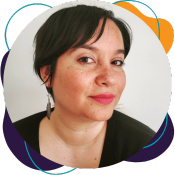
Associate Professor
California State Polytechnic University
USA
Shayda Kafai (she/her) is an Associate Professor of Gender and Sexuality Studies in the Ethnic and Women’s Studies department at California State Polytechnic University, Pomona. As a queer, disabled, Mad Iranian femme, she commits to practicing the many ways we can reclaim our bodyminds from systems of oppression. To support this work as an educator-scholar, Shayda applies disability justice and collective care practices in the spaces she cultivates. Shayda’s writing and speaking presentations focus on intersectional body politics, particularly on how bodies are constructed and how they hold the capacity for rebellion. She is the author of Crip Kinship: The Disability Justice and Art Activism of Sins Invalid (Arsenal Pulp Press, 2021) and the co-editor of the anthology Mad Scholars: Reclaiming and Reimagining the Neurodiverse Academy (Syracuse University Press, 2024).
Lola Dada-Olley (she/her) 
Advocate
Not Your Mama's Autism
USA
Lola Dada-Olley is an attorney, advocate, mother, wife, sister, and podcast founder. Her legal specialization puts her squarely at the intersection of law, accessibility and technology. Lola's legal practice involves advising business partners on matters relating to the Americans with Disabilities Act concerning the design, procurement, implementation and decommission of various technologies.
In 2020, Lola launched the Not Your Mama's Autism Podcast. Part audio memoir/part interview style podcast, Lola weaves in personal narratives of her life as an older sibling to an autistic man with an intellectual disability and now, as a mother of two autistic children, with interviews of various members of the global neurodivergent and disability communities. Lola’s podcast touches upon issues such as societal stigma, culture, intersection of race and disability, access to health care, mental health related to lifetime caregiving, community policing and corporate inclusion efforts.
In 2021, Lola gave a TEDx talk, titled, "Your Path is Your Purpose", where she explained how seemingly disjointed events led her to the life purpose she lives today. Lola gives talks nationwide to various organizations on a variety of topics including hope, societal stigma, disability inclusion, design thinking, special education, access to health care, and the mental health of lifetime caregivers.
Lola has recently served on the board of two non-profits dedicated to bettering health care, support, and employment opportunities for people with disabilities. In 2024, Lola was honored by the American Council on Rural Special Education for her advocacy efforts with their social justice award.
In 2025, Lola and her family are featured in the documentary, Sensory Overload, a film produced by Vox Media in partnership with Sensodyne, scheduled for release on Hulu on March 3, 2025. The film was recently made an official selection at BrandStorytelling 2025, a Sundance Film Festival sanctioned event in January 2025. The documentary was produced as part of the Sensodyne Sensory Inclusion Initiative, a mission created to raise much needed awareness on the importance of oral care with sensory considerations in mind.
Lola is also working on her debut book, a memoir about lifetime caregiving through the lens of both a sibling and mother, scheduled for release in 2026. She has a bachelor’s degree in computer information systems from Eastern Illinois University, a master’s degree in journalism from Northwestern University and a law degree from Howard University School of Law.
Lola lives in North Texas with her family. She has been married for nearly twenty years to her husband, Tosan. They have two children together, a boy and girl. The couple also has a fur baby, an entitled Portuguese water dog. In her spare time, Lola enjoys sleeping like a baby.
